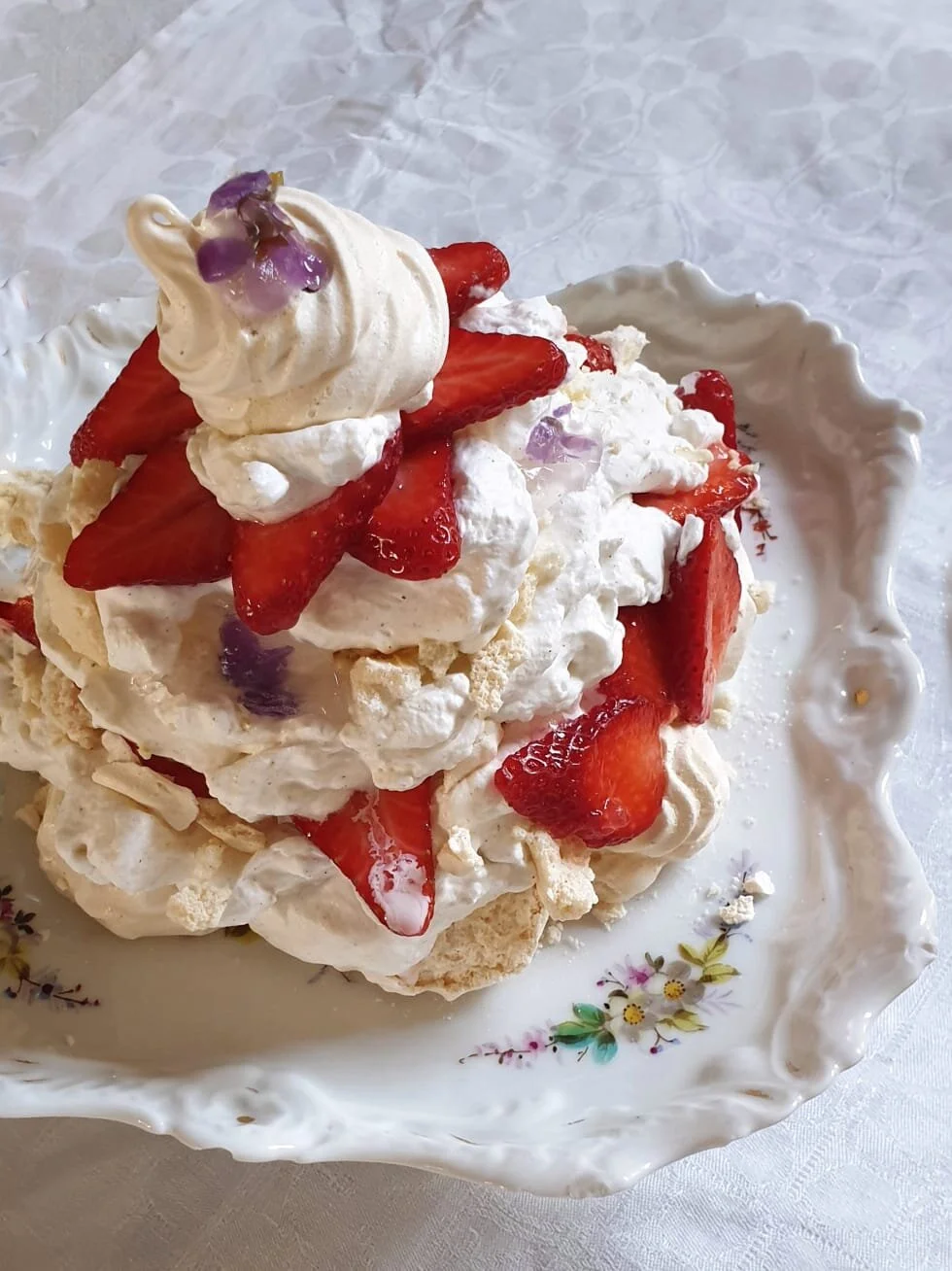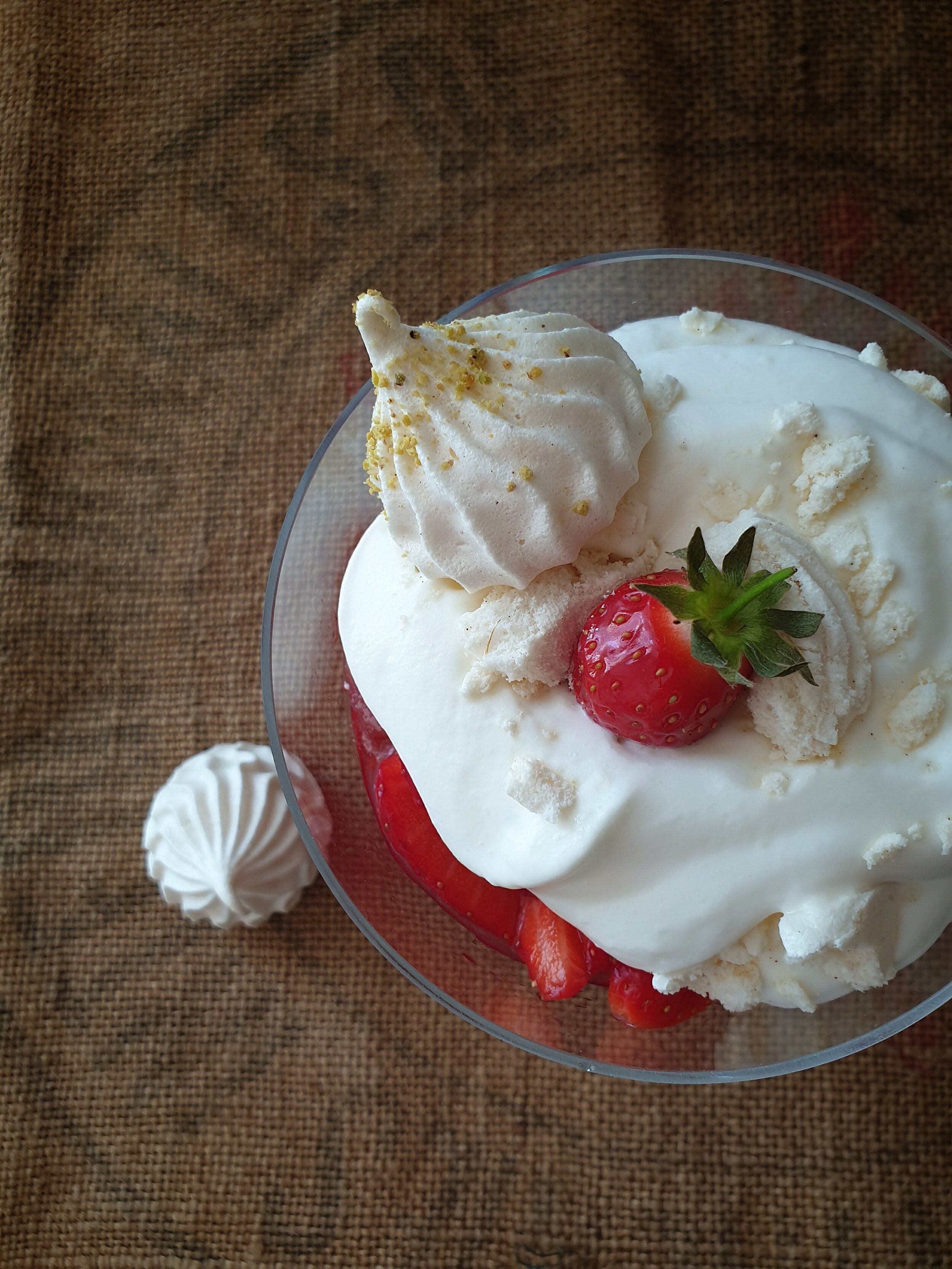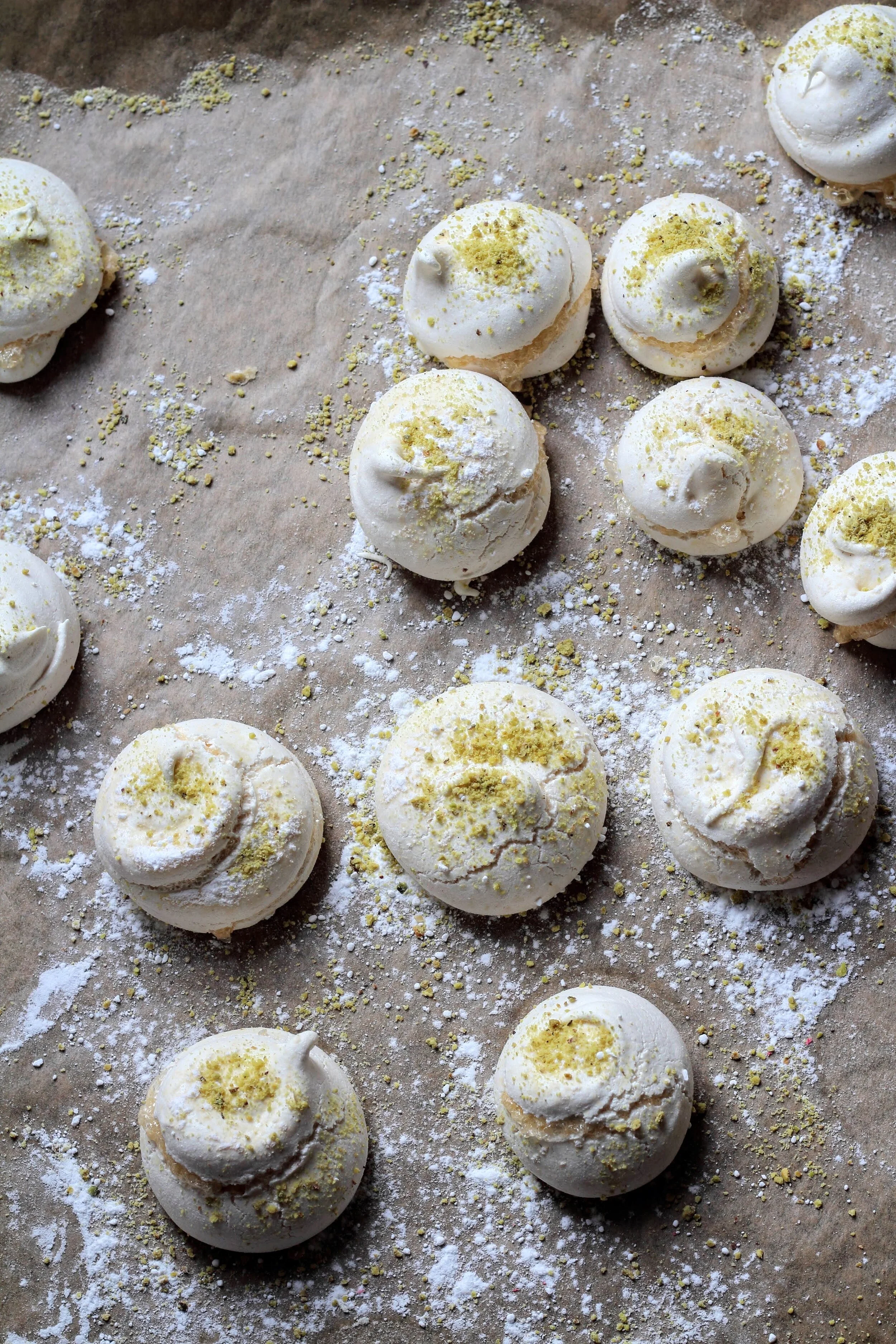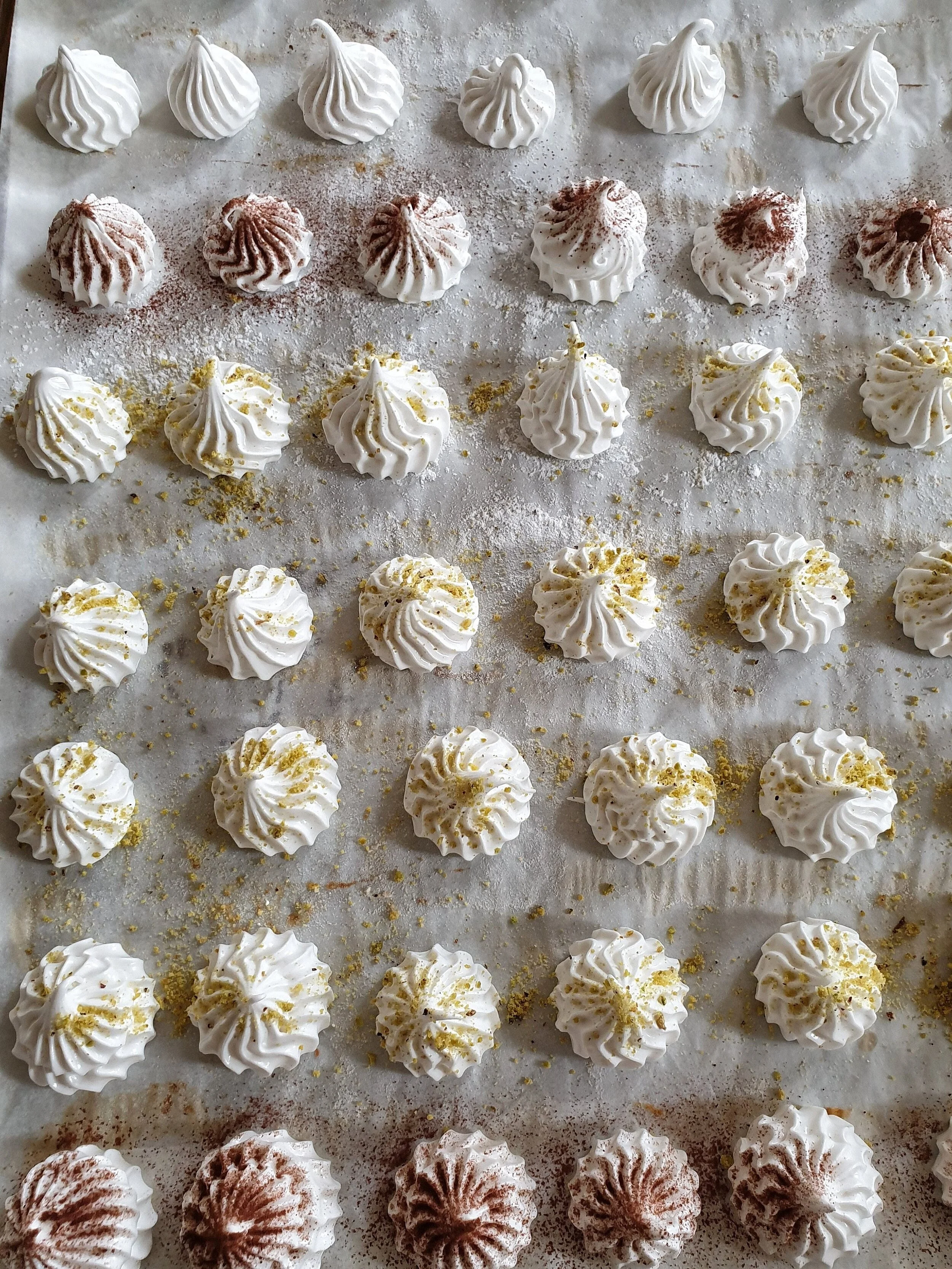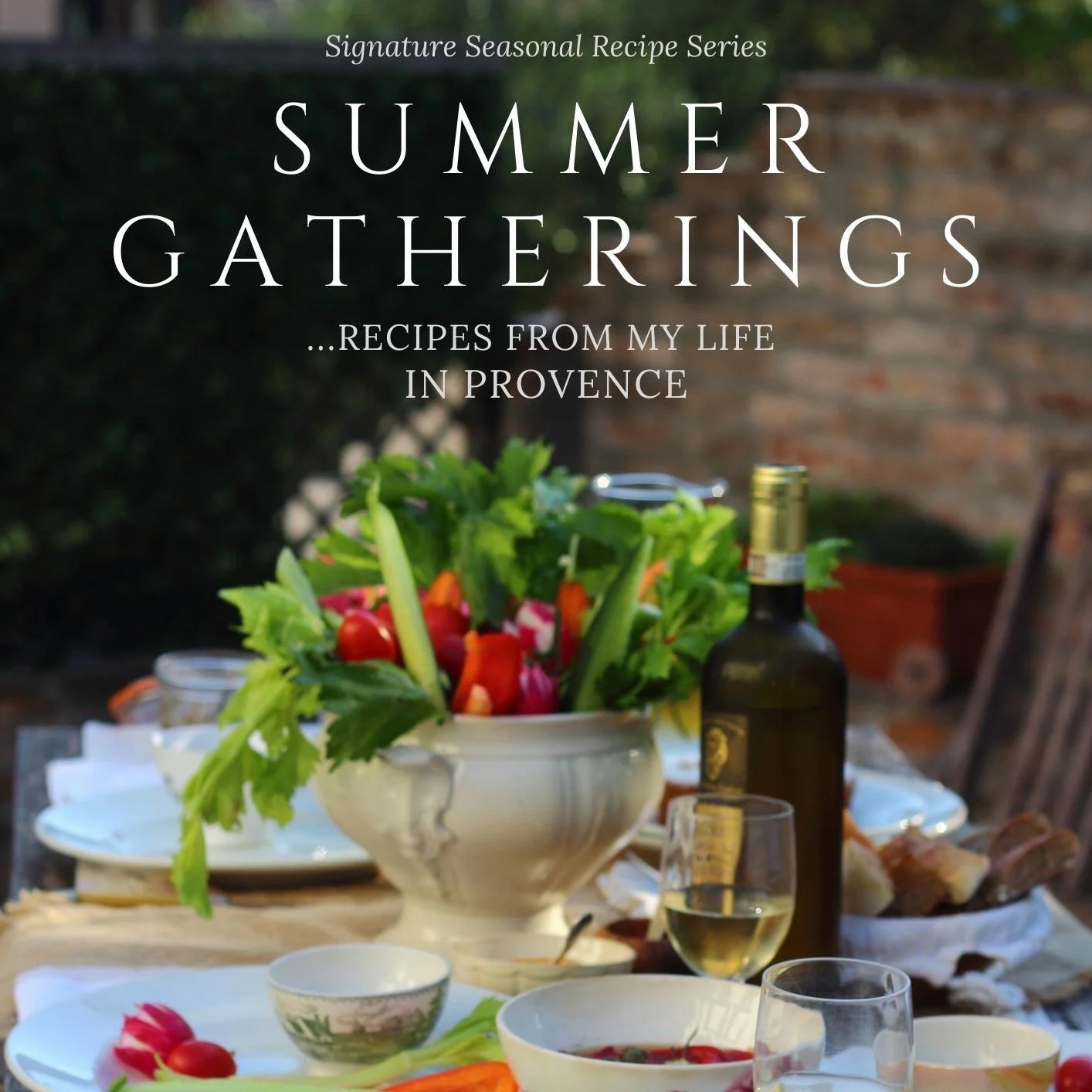(This recipe is featured in my Signature Spring Menus that you can get here at a discounted price)
I’ve always loved meringues
When I was a kid, my grandmother used to send me to the grocery shop with the shopping list. That place was beautiful: wooden shelves stocked with all kinds of cheese, cured meats and canned food, while on the opposite side of the countertop there were plenty of sacks with beans, flour and sugar. And there were always meringues, too.
Enormous, white, sweet meringues.
My grandmother was a woman from the mountains, you know. She was soft on the inside but she would never show it. At that time, we paid all grocery bills at the end of the month, so I didn’t really need money for my shopping rounds.
One day, (and what a day!) I couldn’t resist and eventually bought myself a much-desires meringue… which I wasn’t allowed to, obviously. As I was biting it, however, I experienced the most guilty pleasure of my childhood years. And if you ask me, it was well worth my grandma's anger once she discovered the feat!
Now, I make my own meringues and it’s a whole different story. As you’ll notice by reading the recipe below, I use spices. That’s because I find that eggs and sugar alone usually result in a flat taste. You can choose what spices to go for according to your taste but I do recommend adding a pinch of ginger to prevent that “eggy” smell that you can have sometimes with meringues.
Ingredients
Egg whites, caster sugar, salt, spices of your choice
Notes
Instead of giving you the weight of ingredients, I prefer to provide you with the proportions as it’s challenging to have a perfect measurement for egg whites. My proportion is 180 gr of sugar for every 100 gr of egg whites. I use caster sugar because it dissolves quickly. I also add a tiny pinch (or two) of salt and spices. It could be vanilla, ginger, allspice, long pepper, cinnamon, depending on my creativity. But I always use ginger as it gives a fresh touch to the meringue.
They say that you need old egg whites to have a good meringue but believe me, it’s not true. I would say that they turn out even better with fresh eggs. The eggs must be at room temperature.
If you want to make the perfect meringues, it’s better if you use a stand mixer. But make sure that the whisk and the bowl are perfectly clean, as any trace of fat will ruin your work. If you don’t have a stand mixer you should use only four or five egg whites at a time, otherwise, they'll be difficult to whip apart.
Directions
First of all, when you do “patisserie” it’s always a good habit to prepare all your ingredients from the beginning. For most recipes, in fact, you can’t have much idle time from one step to another so better be prepared. So, get your eggs at room temperature and weigh and mix the sugar and spices in a bowl. Line the baking tray with parchment paper and preheat the oven.
Now, let’s talk about the oven temperature…it really depends a lot on the oven you’re using. I suspect mine has a lower-than-average temperature, so I always set it a little higher. But let’s say that’s something between 100° and 120° Celsius (so 200/ 240 F). What I do, however, is to preheat to 20° degrees higher than that to compensate for the heat loss that you experience when you one the oven and insert your meringues. If you do decide to do the same, please remember to lower the temperature down once your meringues are in.
Pour the egg whites with the salt in the mixing bowl with the spice and the right amount of caster sugar (180gr for every 100gr of egg whites) and start whisking to a low speed till the eggs start foaming. If they don’t, increase the speed a little. Whisk until soft picks form. At this point increase the speed and begin to add the sugar a spoonful at a time, waiting a few seconds between one another. Keep on going till you have a very firm, glossy meringue.
Using a metal spoon place dollops of meringue on the lined baking tray, leaving some space in between them. If you are skilled in using a piping bag, you can have some fun designing different shapes.
Now, it’s time to bake your meringues:
1 ½ hour for marshmallowy meringues
about 3 hours for thoroughly cooked and crispy meringues
Now, I have a golden nugget for you: when you cook them thoroughly, you can store them in a tin box (or any air-tight container) for quite a long time. Already after two weeks, they’ll be some sort of “melt in your mouth” treat (I discovered this trick because I forgot some in a box and I was almost throwing them away before I decided to taste them first!). Now I make meringues and wait two weeks before eating them. Plus it’s extremely convenient to have them in my pantry as a ready to go addition for any of my desserts.
—
(This meringue recipe is what I used as a base preparation for my Ginger Meringue & Strawberry Cake that's available in The Pescatarian Spring Menu and of course in the Spring Bundle)
—
10-minute pandemic-proof dessert: strawberries with whipped yoghurt and meringues
One day, not so long ago, I wanted to make strawberries with whipped cream. We were in full lock-down and I didn’t have enough cream for the job… so I did the sensible thing and forgot about it… kind of.
I did have some yoghurt instead.
Have you ever tried to whip yoghurt? The great news is that, mixed with just a little bit of cream, it does actually work! So, add two tablespoons of cream to one pot of natural unsweetened yoghurt (125gr), plus one teaspoon of confectioning sugar and a hint of vanilla. It will take longer than whipping regular cream, but in the end, you will get a soft, deliciously acidic cream that works great with strawberries.
Cut the strawberries, put them in a glass or small bowl and top with some elder cordial. If you don’t have it, use some sugar, but not too much. Top the strawberries with the yoghurt cream and add some crushed meringues. Enjoy!
One pot of yoghurt will yield two servings.
FOR MORE SPRING INSPIRED RECIPES CHECK OUT MY SIGNATURE SPRING MENUS BELOW

